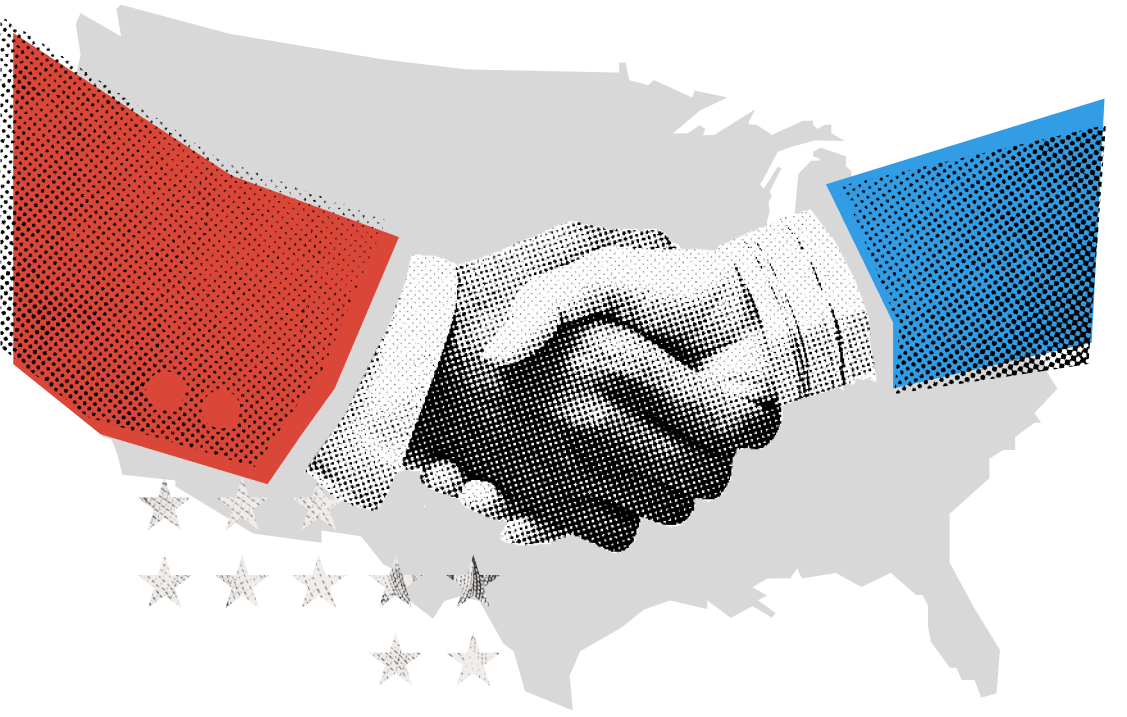
Democratic leaders and donors are panicking about Zohran Mamdani, the 33-year-old democratic socialist who won the party's nomination to be the next mayor of New York City. Despite running in one of the most liberal cities in America, many establishment Democrats fear Mamdani could lose the general election. The Democratic establishment finds itself stuck with a nominee who emerged from a low-turnout primary dominated by ideological activists, not the broader coalition needed to win citywide. Mamdani (and lefty candidates like him) could hurt the Democratic party's brand nationally, and potentially sully their efforts to regain control of Congress.
This scenario echoes the 2022 midterm elections, when Senate majority leader Mitch McConnell watched helplessly as Trump-endorsed primary winners like Mehmet Oz cost Republicans their chance to regain the Senate. Despite favorable political conditions, multiple GOP primaries produced nominees who were ideologically unrepresentative of voters in their states, particularly on 2020 election conspiracies.
Both cases illustrate the same problem: party primaries prevent party leaders from advancing their most competitive candidates. A more democratic nominating process—open, all-candidate primaries—would actually strengthen parties by enabling leaders to select nominees better suited for general elections.
Parties provide frameworks to help voters make sense of politics today. American government involves countless campaigns, elections, and complex policy debates, and parties can help voters simplify the political map. By understanding each party’s general ideology and leadership, voters can form meaningful positions on otherwise obscure candidates and issues.
But for parties to have even a somewhat unified voice, policymakers must be reliably committed to their party's platform. One way party leaders ensure this commitment is by controlling who the party nominates. This is why many political scientists prefer systems that give party leaders more influence over nominations.
If parties are weak and cannot ensure nominees will endorse the party's platform, they become unreliable signals to voters and more easily captured by well-organized interest groups—or worse, demagogues and aspiring tyrants. This describes our current reality.
Currently, party leaders who care about winning find it difficult to nominate candidates with broad general election appeal. Instead, party leaders have candidates thrust upon them by slivers of voters—those who participate in primaries, which are low-turnout affairs that attract the most ideological voters. This was on full display in 2016, when the GOP establishment couldn't prevent an inexperienced outsider from winning the presidential nomination, and the Democratic Party nearly ended up with a self-described socialist.
As a result, parties increasingly entertain positions largely out of step with the American electorate, even though these policies hurt their chances of winning or maintaining control. Why? Because parties are increasingly composed of ideological purists, or incumbents afraid of losing to ideological purists.
Election reforms that eliminate party primaries are necessary for parties to serve their own interests—producing nominees more closely aligned with the general electorate. Primary reforms like California's "top two" and Alaska's "top four" models encourage party organizations to compete for power by appealing to a broader set of voters, organizations, and donors in the nomination process.
What changes is who candidates are accountable to: a fundamentally reconstituted primary electorate that closely represents the general electorate rather than a wildly unrepresentative primary electorate. This creates incentives for candidates to build broader, more diverse coalitions from the start.
My colleague Jesse Crosson (Purdue University) and I conducted a study of House primaries from 2004 to 2018. Using campaign finance data to identify candidates who attracted the most support from party-aligned donors—a proxy for party establishment preferences—we discovered that these preferred candidates perform better under supposedly open, all-candidate primary systems compared to traditional party primaries.
Rather than weakening party influence, open, all-candidate primaries may actually strengthen the ability of election-minded party leaders to get their preferred candidates nominated. Our research also suggests that party donors are more likely to coalesce around moderate candidates in open, all-candidate primary systems, providing evidence that parties adapt their strategies rather than simply losing influence.
Election reformers should embrace the importance of strong parties for healthy democracy, and political parties should move beyond the assumption that democratizing primary reforms weaken party systems. To the contrary, such reforms are necessary for revitalizing the kind of parties that make democracy functional.
Open, all-candidate primaries offer an immediate and achievable path toward parties that are both representative and responsible, capable of building broad coalitions while maintaining coherent governing agendas. The choice isn't between strong parties and democratic participation—it's between parties that serve ideological activists and parties that serve the broader electorate. All-candidate primaries help ensure it's the latter.
Dr. Richard Barton is a Senior Research Fellow at Unite America and an Assistant Teacher Professor at Syracuse's Maxwell School of Citizenship and Public Affairs.

Stay up-to-date on the latest news and resources from Unite America.